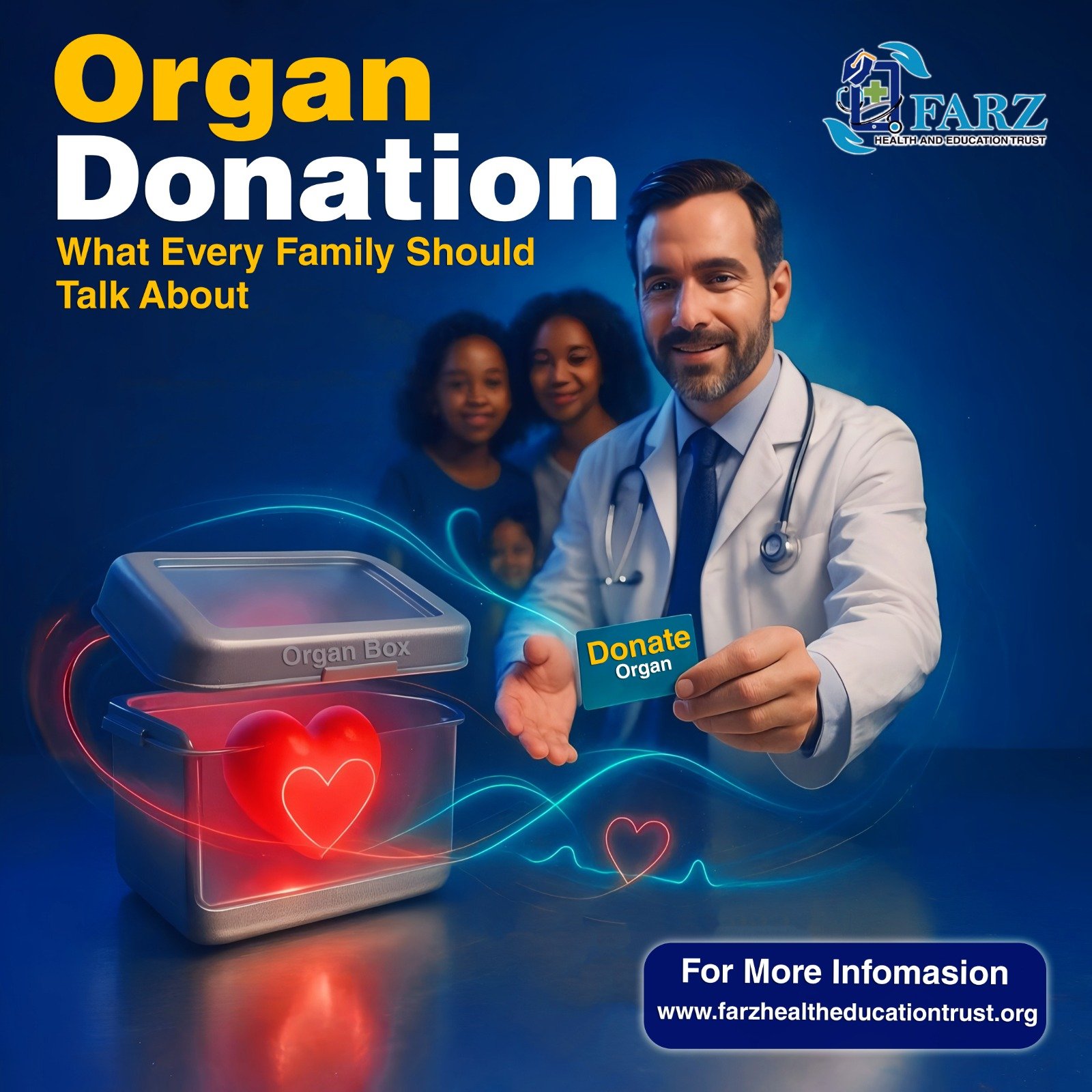
Every year, more than 5 lakh Indians die waiting for organ transplants—lives that could be saved if more families started the organ donation conversation at home. According to the National Organ & Tissue Transplant Organization (NOTTO), India faces one of the lowest organ donation rates globally, despite having one of the world’s largest populations. This makes it urgent for families to break the silence around this life-saving decision.
Why Families Avoid Talking About Organ Donation
Cultural Barriers and Misconceptions
Many Indians hesitate due to cultural myths or religious doubts. However, most faiths actually support organ donation:
- Hinduism encourages daan (selfless giving).
- Islamic scholars have issued fatwas supporting donation.
- Sikhism considers it a form of sewa (service).
- Christianity sees it as an act of love and charity.
Despite this, surveys show that 68% of families still cite religious reasons for refusal—mainly because the subject was never discussed before tragedy struck.
The Cost of Silence
- Every 10 minutes, someone in India is added to the organ waiting list.
- 20 people die daily waiting for organs that never arrive.
- Families who never spoke about donation often default to saying no in moments of grief.
How to Start the Organ Donation Conversation
1. Choose the Right Moment
Bring it up naturally—during a health check-up, after reading a news story, or while preparing for festivals that celebrate giving.
2. Ask “What If” Questions
Instead of declarations, ask:
- “If you needed an organ, would you accept one?”
- “How do you think our religion views helping others this way?”
3. Share Stories, Not Just Numbers
Real-life stories resonate more than statistics. For example:
In January 2025, when Chennai traffic constable Rajesh Kumar passed away in an accident, his family’s prior discussion about organ donation allowed them to save five lives—including a 7-year-old girl.
Essential Topics Families Should Discuss
Personal Wishes
- Which organs/tissues you’re open to donating
- Any restrictions or preferences
- Whether you’re comfortable with donating to strangers
The Legal Framework in India
- Governed by The Transplantation of Human Organs and Tissues Act (THOTA) 2014
- Brain death must be certified by independent doctors
- Family consent is mandatory, even if you have a donor card
The Donation Process
- Brain death is declared (different from coma)
- Family counseling takes place
- Medical evaluation and matching
- Surgery performed respectfully; body is prepared for final rites
Overcoming Common Concerns
- “Will doctors let me die?” → No. The treating doctors are different from the transplant team.
- “What if I’m not really dead?” → Brain death is irreversible, confirmed by strict medical tests.
- “Will my body be disfigured?” → No. Surgeries are done respectfully, allowing open-casket funerals if families choose.
Making It Official
- Register your intent on the NOTTO website or state registries.
- Carry a donor card to signal your wish.
- Include your wishes in advance medical directives.
- Inform family and doctors so your choice is respected.
A Family Action Plan
- This Week: Read and share this article with your loved ones.
- This Month: Schedule a family discussion.
- This Quarter: Register as organ donors together.
- This Year: Inspire others by sharing your story.
Why It Matters
Organ donation is not about death—it’s about life, legacy, and love. When Bengaluru engineer Priya Mehta’s family chose to honor her wishes after a brain hemorrhage in 2024, her organs saved five people. Inspired by her story, 300 of her colleagues registered as donors, creating a ripple effect of hope.
Your one conversation today can give someone else a tomorrow.
Final Takeaway
Organ donation is the greatest gift of life. It takes just one family discussion to transform grief into hope, loss into legacy, and silence into life-saving action.
The question is—have you had the conversation yet?
